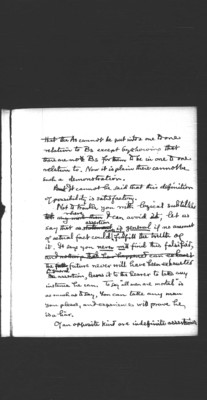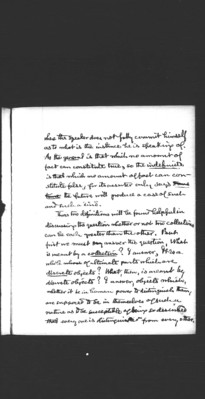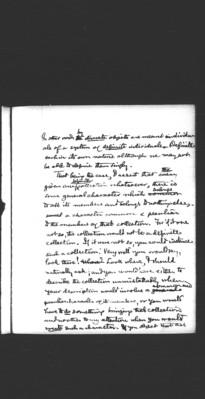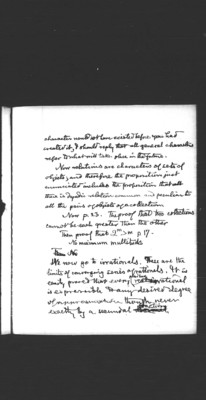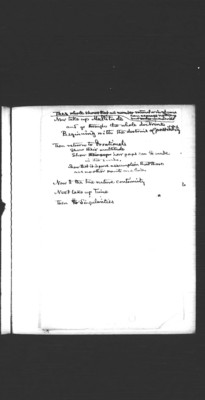Pages
116
that the As cannot be put into a one-to-one relation to Bs except by showing that there are no Bs for them to be in one to one relation to. Now it is plain there cannot be such a demonstration.
It cannot be said that this definition of possibility is satisfactory.
Not to trouble you with logical subtleties where I can avoid it, let us say that an assertion is general if no amount of actual fact could certainly fulfill the truth of it. It says you never will find this falsified. The future never will have been exhausted. A general assertion, leaves it to the hearer to take any instance he can. To say “all men are mortal” is as much to say, you can take any man you please, and experience will prove he is a liar.
Of an opposite kind are indefinite assertions
117
where the speaker does not fully commit himself as to what is the instance he is speaking of. As the general is that which no amount of fact can constitute true, so the indefinite is that which no amount of fact can constitute false; for its asserter only says the future will produce a case of such and such a kind.
These two definitions will be found helpful in discussing the question whether or not two collections can be each greater than the other. But first we must answer the question, What is meant by a collection? I answer, It is a whole of ultimate parts which are discrete objects? What, then, is meant by discrete objects? I answer, objects which, whether it be in human power to distinguish them, are supposed to be in themselves of such a nature as to be susceptible of being so described that every one is distinguished from every other.
118
In other words by discrete objects are meant individuals of a system of definite individuals —Definite each in its own nature although we may not be able to define them singly.
That being the case, I assert that given any definite collection whatsoever, there is some general character which belongs to all its members and belongs to nothing else,— a character common and peculiar to the members of that collection. For if it were not so, the collection would not be a definite collection. If it were not so, you could instance such a collection. “Very well” you would say, look there! Look where, I should naturally ask; and you would have either to describe the collection unmistakably when your description would involve a common and peculiar character of its members, or you would have to do something bringing that collection and no other to my attention when you would create such a character. If you object that that
119
character would not have existed before you had created it, I should reply that all general characters refer to what will take place in the future.
Now relations are characters of sets of objects; and therefore the proposition just enunciated includes the proposition that there is dyadic relation common and peculiar to all the pairs of objects of a collection.
Now p. 23. The proof that two collections cannot be each greater than the other
Then proof that 2m > m p 17
No maximum multitude
We now go to irrationals. These are the limits of converging series of rationals. It is easily proved that every positive real irrational is expressibleto any desired degree of approximation though never exactly by a secundal fraction.
120
The whole shows that all number rational or [??] can express nothing but order in a series.
Now take up Multitude and go through the whole doctrine Beginning with the doctrine of possibility. Then return to Irrationals Show their multitude Show how gaps can be made Show that it is pure assumption that there are no other points on a line. Now to the true nature continuity Next take up Time Then Singularities
